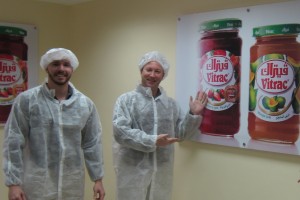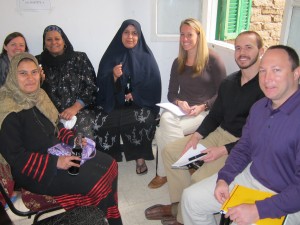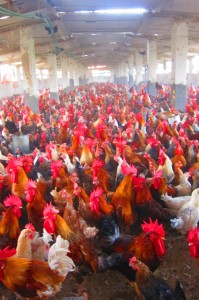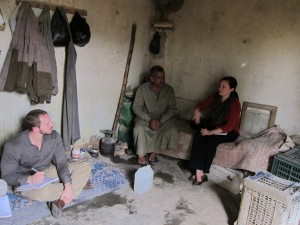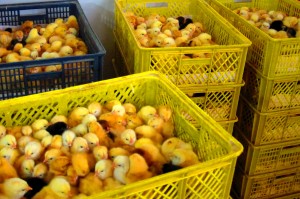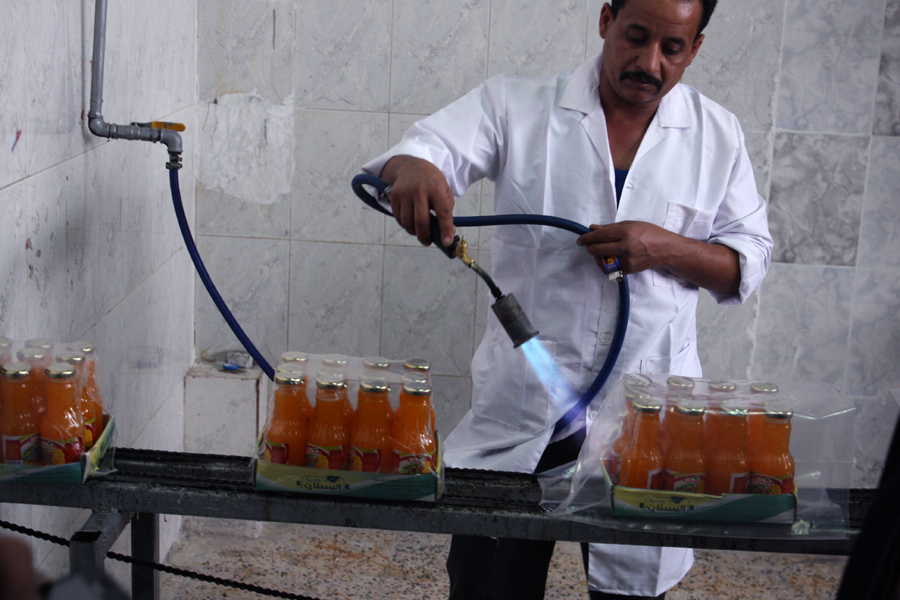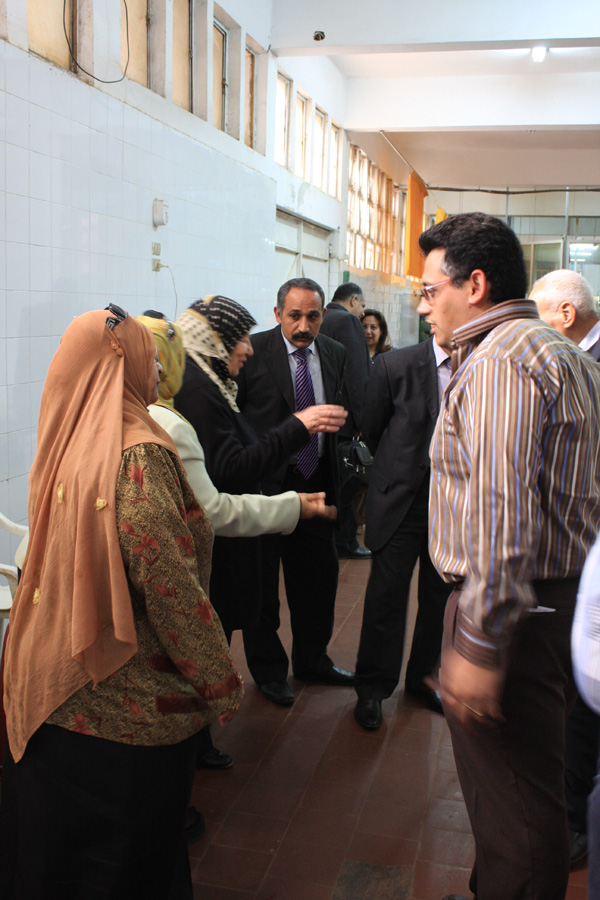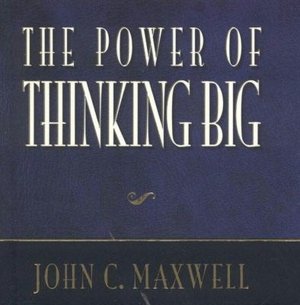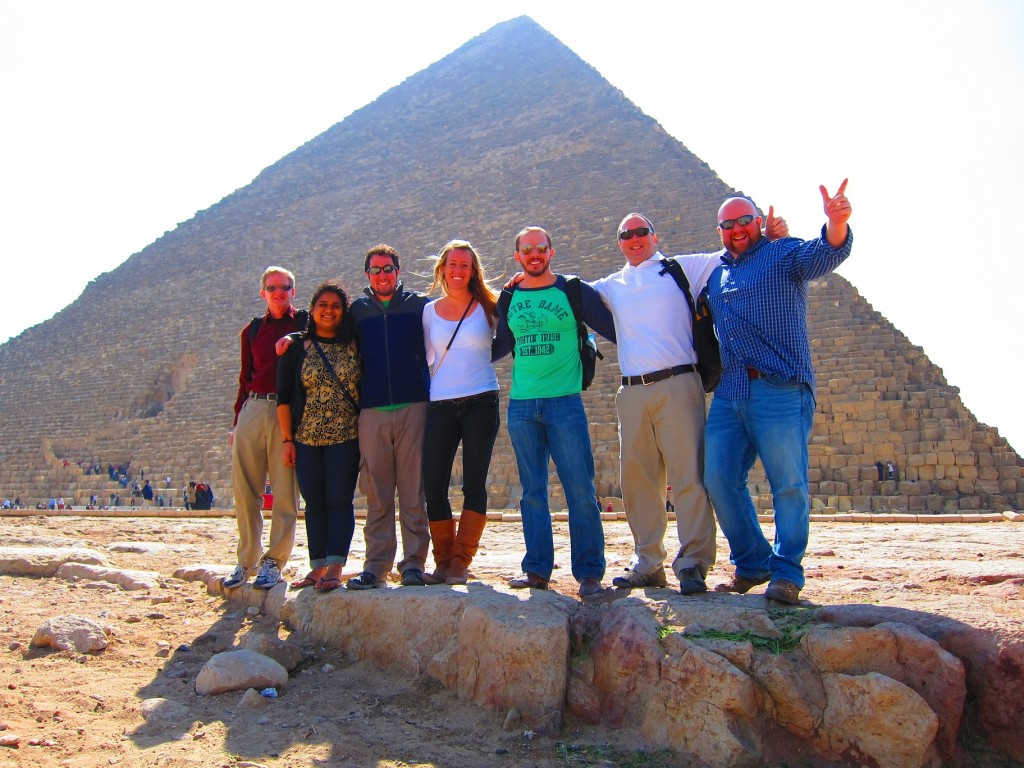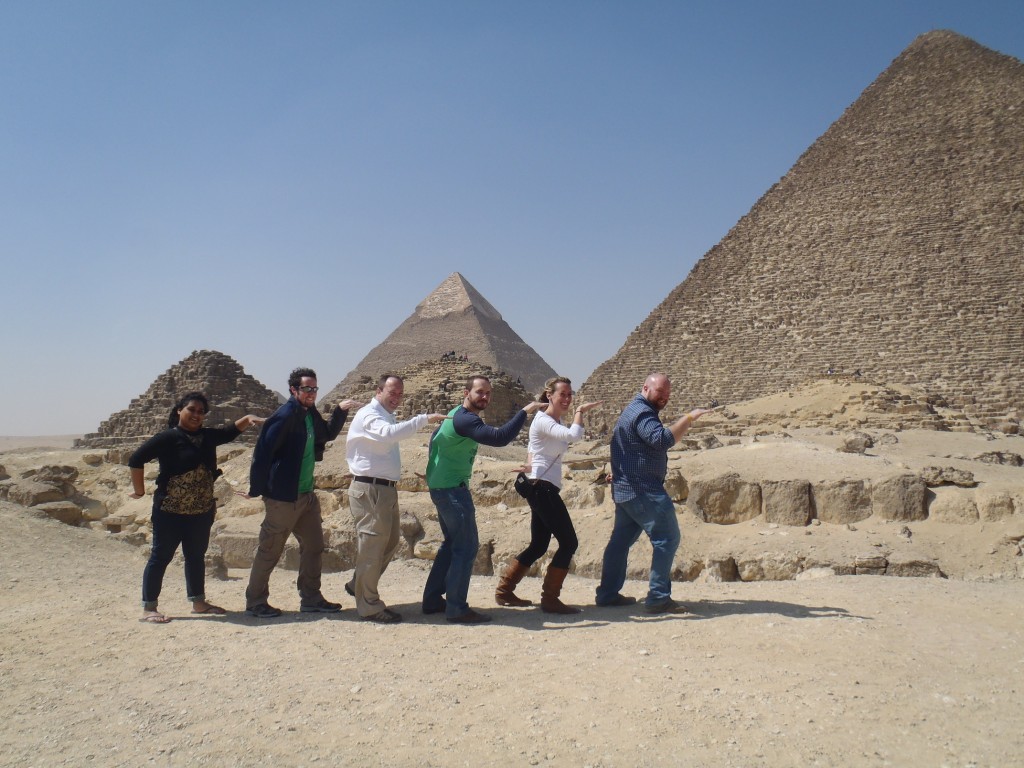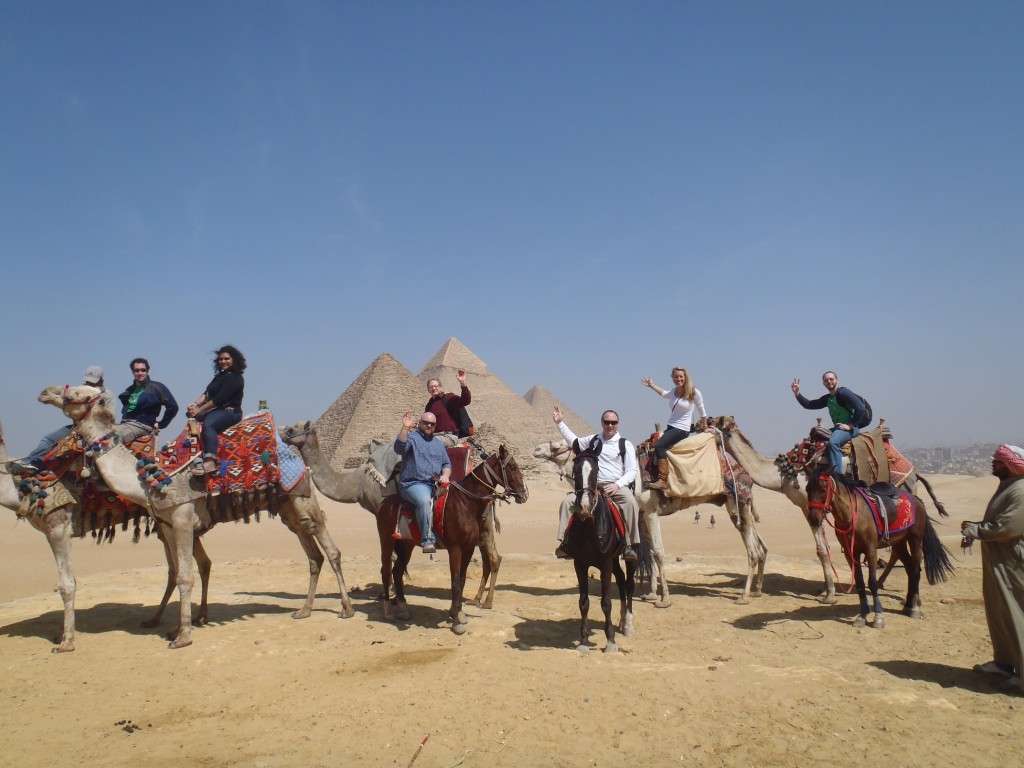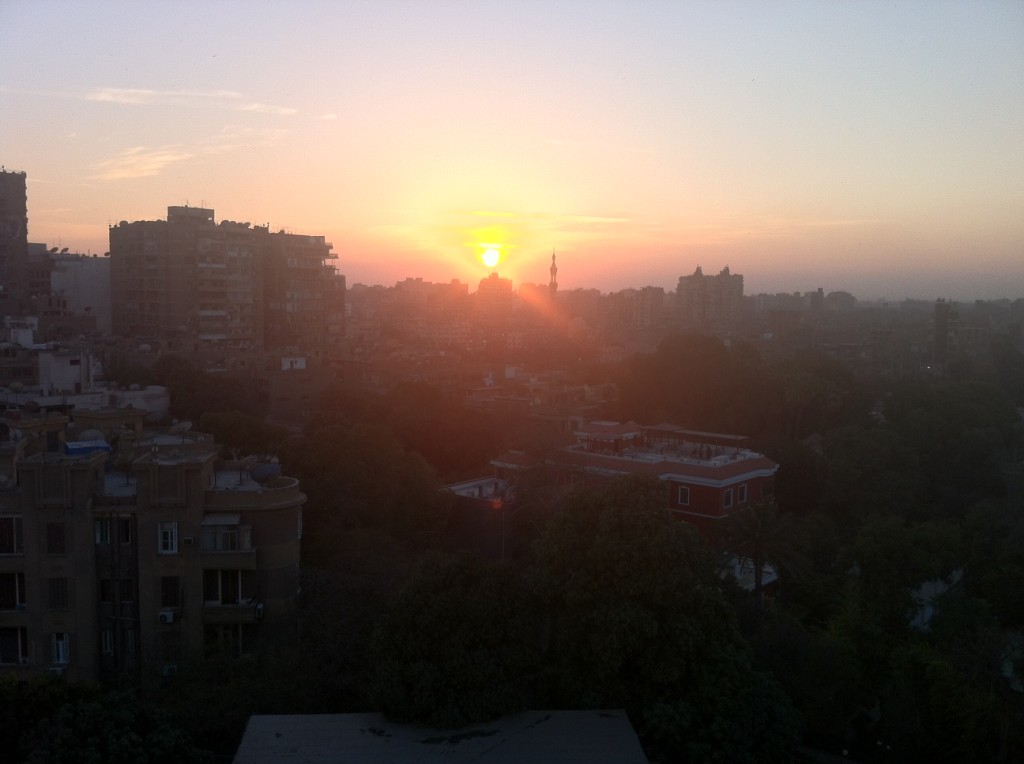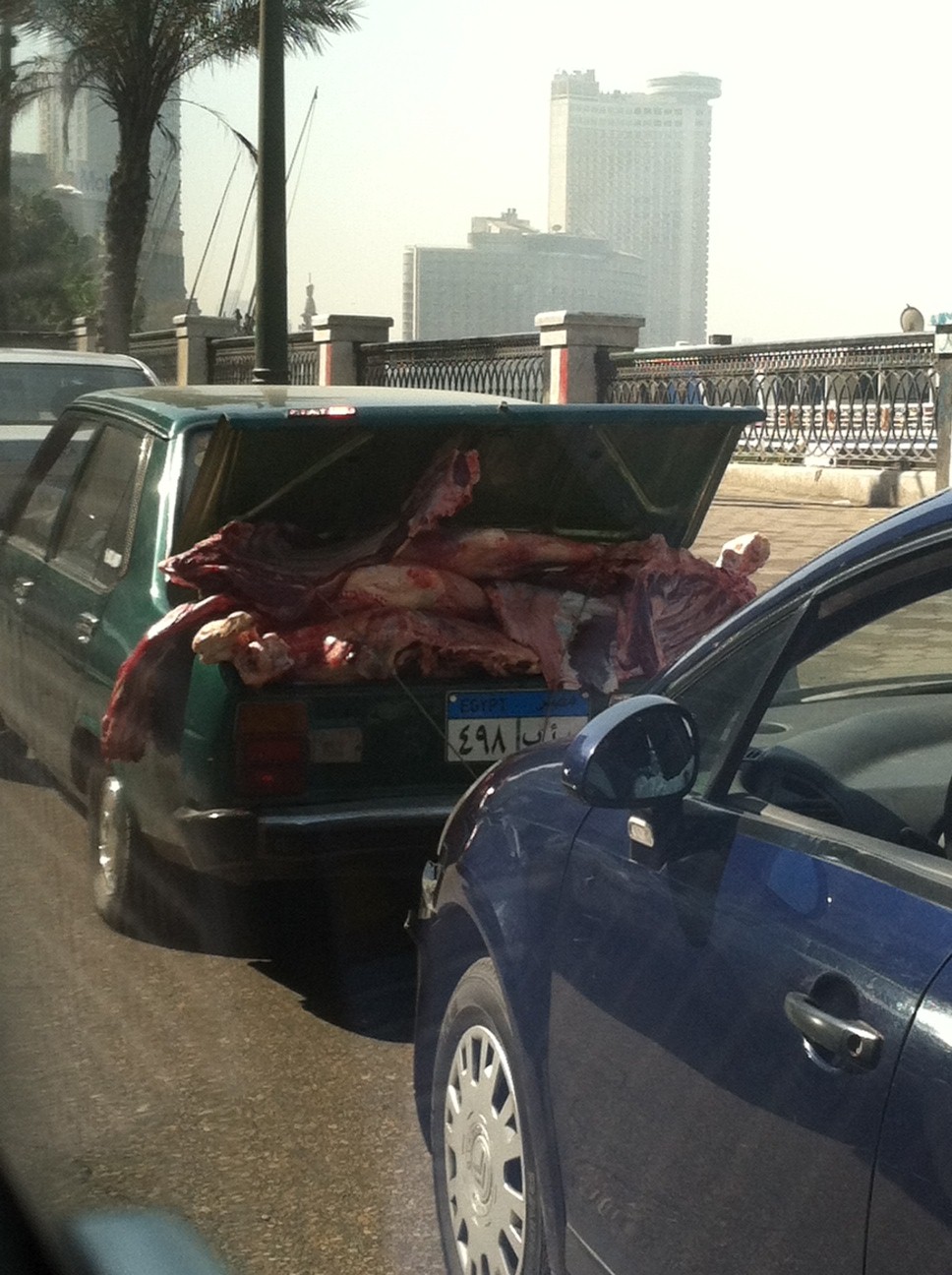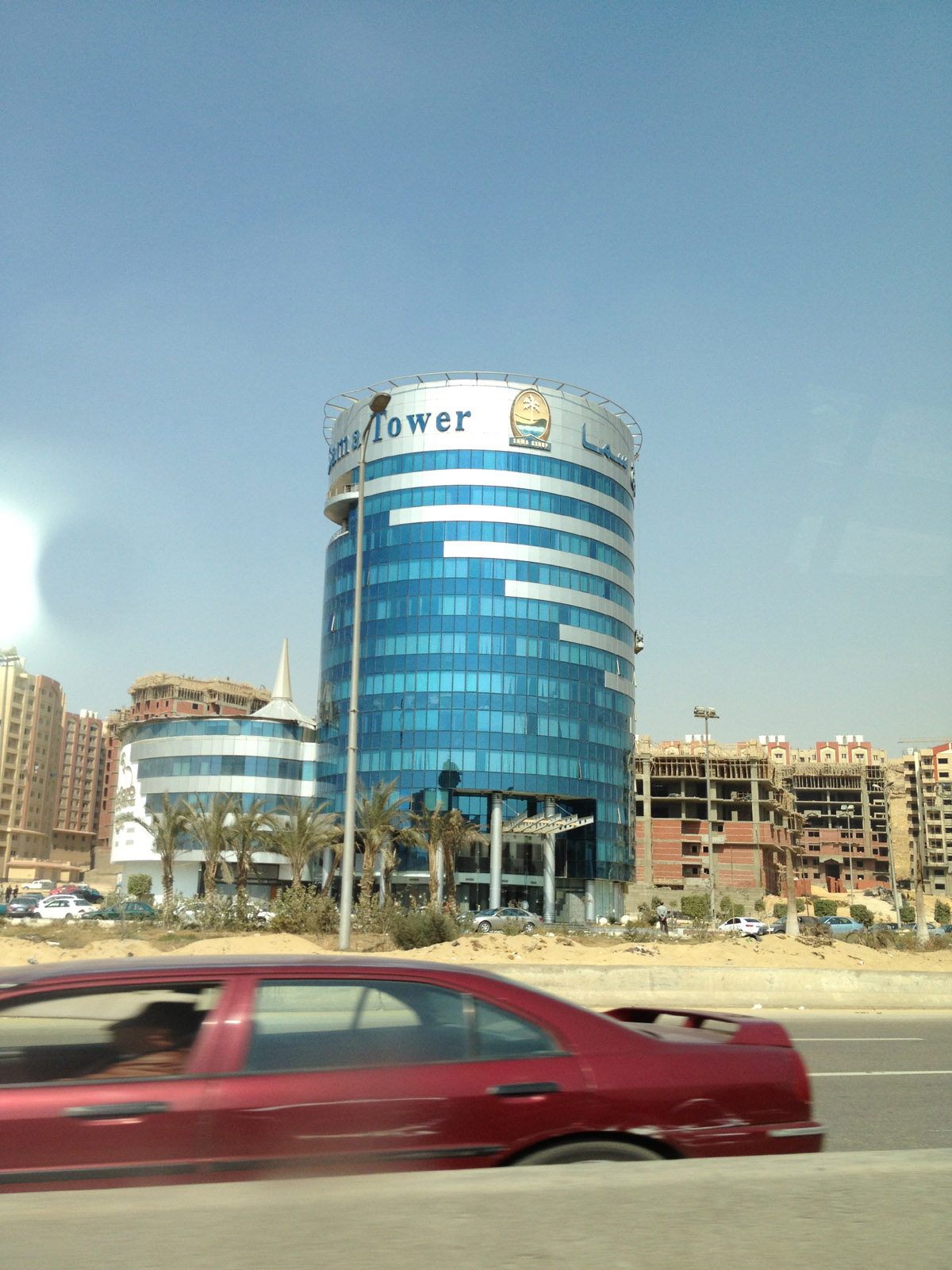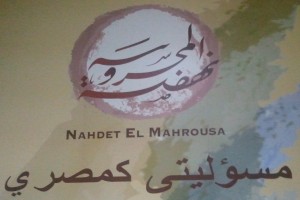Our in country time is nearly at its end…The team finished out the trip with another trip out to New Cairo to meet with GE this morning. They rolled out the red carpet for the team, with presentations by the CEO of Northeast Africa, the head of MENAT Legal, and representatives from Healthcare, Transportation, and Energy. Following the presentations, we headed back to the CRS office in regular Cairo for our final presentation.
We presented to representatives of CRS Egypt, as well as the Regional Director and other advisers for the Middle East and North Africa. As requested, the team provided CRS with a number of potential strategies to help reduce the burden of unemployment, focusing in the agriculture sector. As we head back to the states, we will continue to hone in on just one of the strategies with the help of CRS in country.
Following the final presentation, we finished off our experience with a felucca ride on the Nile at sunset. It’s so much quieter on the water than anywhere in the city and the timing of the ride was perfect. 
After 13 days and more than 2,000km traveled in country, 60+ hours sitting in traffic, and unending thoughts about how to solve a terribly important and difficult problem, we’re all pretty exhausted. The full impact of this experience probably won’t hit until we’re back at home and well rested but I’m sure that it will be one that will stay with each of us for the rest of our lives. A big thank you to everyone at CRS both here in Egypt and at home for all the hard work and support of our efforts! Also thank you especially to the donors who help make it possible to send nearly 30 people from Notre Dame to the far reaches of the globe in the pursuit of learning and service!
On the ground in Chicago in less than 24 hours…Go Irish!
 Our meetings today were some of the most important and influential:
Our meetings today were some of the most important and influential: 